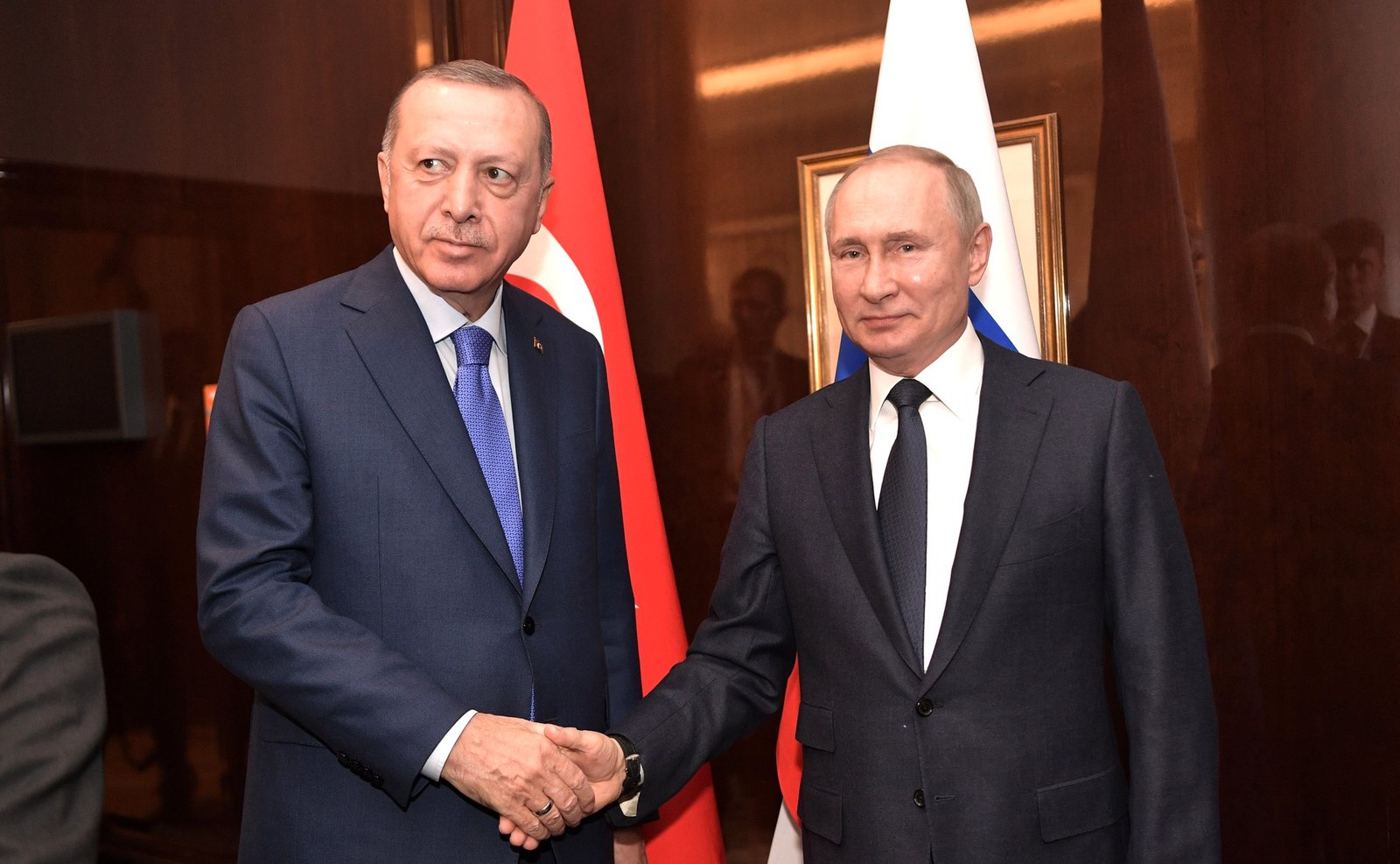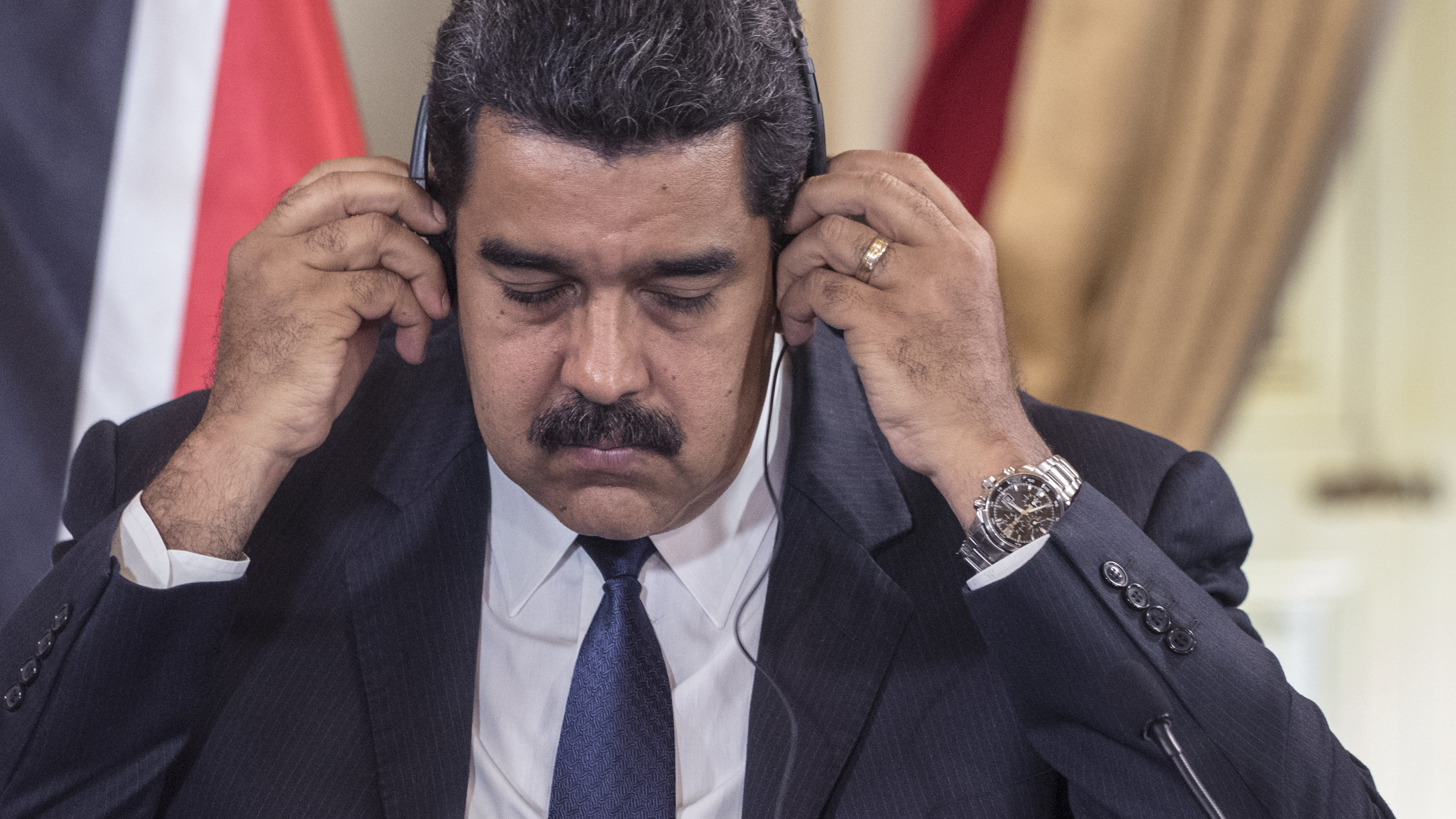The S-400 Knot in U.S.-Turkey Relations: Assessing the Viability of U.S. Sanctions
Trump might finally impose CAATSA sanctions on Turkey. But without a broader strategy to address fractured U.S.-Turkey relations, sanctions will prove counterproductive to American interests.

The U.S.-Turkey relationship fractured along numerous fault lines in recent years. President Trump’s refusal to implement sanctions required by the Countering America’s Adversaries Through Sanctions Act (CAATSA) for Turkey’s purchase of Russian S-400 surface-to-air missile systems has drawn sustained bipartisan congressional ire since summer 2019. Reports suggest that the Trump administration will finally implement CAATSA sanctions as early as today in an effort to get ahead of the National Defense Authorization Act for Fiscal Year 2021, which will require the president to implement sanctions within 30 days of the defense spending bill’s enactment. The provision in the bill will allow sanctions relief only if Turkey gets rid of its S-400s entirely, which is unlikely to occur.
Sanctions on Turkey may now be inevitable, but CAATSA does offer the president a variety of options to choose from. A sophisticated U.S. sanctions regime that makes selective use of CAATSA could be an effective remedy for the S-400 problem, but it must be placed within a broader strategy to address Washington’s relations with its erstwhile NATO ally.
Wielding CAATSA as a purely punitive tool would conversely fail to alter Ankara’s foreign policy, cause unjustifiable harm to the Turkish population and exacerbate existing challenges within NATO—all to the benefit of Russia, which is CAATSA’s primary target. Effective sanctions regimes require clear goals and an understanding of the target’s ability to tolerate sanctions, and they must offer a realistic path to relief for the sanctioned state. In crafting a sanctions regime targeting the Turkish government, it is important not only to take stock of Ankara’s vulnerabilities but also to assess how the imposition of sanctions could benefit the Erdogan administration.
The Potential for a Confused Sanctions Policy
Although President Recep Tayyip Erdogan found an unprecedented ally in his counterpart President Trump, the U.S. Congress, federal departments and American civil society have grown increasingly aggravated by Ankara’s aggressive foreign policy and domestic repression. After Turkey took delivery of S-400 components in July 2019, the United States removed it from the joint F-35 stealth fighter jet program, which Washington says could be compromised by the S-400’s advanced radar. And yet, Trump repeatedly refused to implement CAATSA.
Congressional will to sanction Turkey expanded even further when, following a phone call with Erdogan in October 2019, Trump greenlit the Turkish invasion of northeastern Syria—a region controlled by the United States’s primary local partner in the fight against the Islamic State. The invasion, which had limited territorial goals, was intended primarily to weaken the Syrian Democratic Forces—which Ankara considers an extension of the insurgent Kurdistan Workers’ Party in Turkey—and its partnership with the United States.
Already exasperated by Trump’s obstinate refusal to implement CAATSA sanctions on Turkey after it took delivery of S-400 components in July, Congress began to consider even harsher sanctions packages. The House quickly passed a veto-proof bill that would prohibit arms sales to Turkey, sanction senior Turkish officials involved in the offensive against the Kurds and require CAATSA implementation. Several similar bipartisan bills were proposed in the Senate before Congress made a determination in the National Defense Authorization Act for Fiscal Year 2020 that Turkey’s S-400 purchase is a “significant transaction” under CAATSA and stated that the president should implement sanctions. The new defense spending bill for 2021 takes the further step of requiring—rather than just strongly encouraging—implementation. The congressional desire to finally do something about Turkey is understandable, but it risks confusing the objectives of sanctions and thereby rendering them ineffective.
The Broader Context of CAATSA’s Primary Goals
The legal requirement to sanction Turkey is clear, but whether it would satisfy the goals of CAATSA is another matter. The law, which passed in 2017 with overwhelming majorities in both the House and the Senate, was largely a response to Russia’s interventions in Ukraine, Syria and the 2016 U.S. presidential election. Turkey’s S-400 purchase runs afoul of the law because it represents a “significant transaction” with Russian state-owned arms exporter Rosoboronexport, which is a listed sanctioned entity. The failure to apply the law consistently could encourage other U.S. allies and partners to go ahead with major purchases from Russia.
In November 2019, while Trump was ignoring congressional demands for Turkey sanctions, India made an $800 million advance payment to Russia for five S-400 batteries. And amid the fallout from the U.S. airstrike that killed Iranian Maj. Gen. Qassem Soleimani in January 2020 and the subsequent Iranian missile attacks on Iraqi territory, Iraqi parliamentarians urged Iraq’s security and defense officials to pursue purchasing S-400s from Russia.
Even U.S. partners that already have comparable U.S. Patriot missile systems have now expressed interest in the S-400s. Saudi- and Emirati-operated Patriot batteries have intercepted a number of Houthi-fired tactical ballistic missiles over the course of their war in Yemen, but Saudi Arabia’s Patriot systems did not prove effective against the Iranian missile attacks that damaged major Saudi oil facilities in September 2019. Shortly after that attack, reports emerged while Saudi King Salman was visiting Moscow that the kingdom had agreed to purchase S-400s.
The proliferation of potential S-400 customers supports the argument that secondary CAATSA sanctions on Turkey are necessary to maintain the law’s deterrent effect. Action against Turkey’s purchase may limit the market for Russian hardware, but other benefits would accrue to Moscow regardless. Despite concern in Washington that Turkey could further realign with Russia and China in opposition to U.S. interests, Turkey is no friend to Russia. The two countries have a long history of conflict and are currently at odds in Syria, Libya and the South Caucasus. With its S-400 sale, Russia has already succeeded at exacerbating the relationship between the United States and Turkey—NATO’s two largest military powers. Turkey’s ejection from the F-35 program weakened core NATO principles of interoperability and co-production. Moscow would be happy to see the United States punish Turkey with sanctions that eliminate more U.S.-Turkish co-production and development programs and further polarize the bilateral relationship.
Turkish Vulnerabilities to Sanctions and Capacity for Tolerance
In September 2018, the United States imposed secondary CAATSA sanctions on China for purchasing S-400s and Su-35 fighters from Russia. The sanctions added the Chinese agency responsible for the purchase and its director, Li Shangfu, to the list of specially designated individuals with whom Americans are prohibited from doing business, forbids them from applying for export licenses and denies them access to the U.S. financial system. Similar secondary sanctions would impose significant damage on the Turkish military-industrial complex, which relies on an array of licensing agreements beyond the F-35 program.
Ankara demonstrated a willingness to tolerate the multibillion-dollar loss of F-35 co-production and the corresponding planning difficulties its air force faces with no near-term alternative. However, the precarity of the Turkish economy and its deep integration with American and European markets make Turkey particularly susceptible to a wide variety of U.S. sanctions options.
Primed by years of mismanagement, Ankara burned through $50 billion in foreign exchange reserves to prop up the depreciating lira, but by November the Turkish currency still lost 30 percent of its value, hitting a record exchange rate of more than eight lira to the dollar. A decade ago, the exchange rate was stable at about two to one. The central bank’s net foreign reserves dropped to $16.8 billion in November, down from $41.1 billion at the end of 2019. However, excluding controversial swaps with local Turkish banks, reserves are in the negative.
The shakeup of the government’s economic leadership—including the surreal resignation of Erdogan’s son-in-law, Berat Albayrak, as minister of the treasury and finance—has produced some initial improvement, but the scale of the financial crisis remains significant. Erdogan is loath to turn to the International Monetary Fund for a bailout, because the good governance conditionality of the institution’s loans would undermine the authoritarian practices and patronage networks that undergird his hold on power. Ankara’s effort to secure a swap line from the U.S. Federal Reserve in April as a short-term salve also proved unsuccessful, likely due to the country’s economic mismanagement and rocky geopolitics.
The United States’s core role in the international financial system means U.S. sanctions—be they targeted CAATSA actions or harsher packages advocated by some lawmakers—would hit Turkey’s struggling economy hard. The European Union, which is the destination for more than half of Turkish exports, intends to impose sanctions on individuals involved in what the bloc says is unauthorized drilling off the coast of Cyprus, while leaving the door open for harsher measures. From a purely economic standpoint, a coordinated sanctions regime between the United States and Europe would provide significant leverage for negotiations with Turkey.
However, Erdogan maintains extensive control over the Turkish media environment and is adept at stoking anti-Western nationalism. His bellicose foreign policy interventions, including in northeastern Syria and the eastern Mediterranean, are widely popular in Turkey. If the United States selects a broad sanctions regime, it should expect Erdogan to redirect blame for Turkey’s economic woes on Washington with substantial success. As Nate Schenkkan noted in a Freedom House policy brief in November 2019, sanctions could further have the perverse effect of not only bolstering Erdogan’s ruling coalition but also fracturing the tenuous alliance between nationalist opposition parties and the pro-Kurdish party that could otherwise build on last year’s victories in local elections to chip away at Erdogan’s grip on power.
Avoiding Intractability
The prospect of U.S. sanctions on its NATO ally Turkey is far more complex than most U.S. sanctions regimes, many of which target clearly defined U.S. adversaries. Trump’s approach to the problem failed to both implement the law and form a strategy to resolve the S-400 crisis. Finally meeting his statutory obligation at the last minute by enacting what are expected to be the narrowest of CAATSA’s options—sanctions against Turkey’s defense procurement agency and officials—Trump will leave the Biden administration the flexibility to decide for itself whether to sustain or expand sanctions. Before making any adjustments, the Biden administration should, in consultation with Congress and the European Union, develop a coherent plan for sanctions nested within a broader diplomatic strategy to address the deterioration of bilateral relations.
U.S. financial sanctions and European trade sanctions have clear potential to cause tremendous economic pain in Turkey, but they may be counterproductive to the goal of altering Turkey’s foreign policy and would cause undue collateral suffering among the Turkish population. Furthermore, sanctions designed to degrade the Turkish economy and military would undermine NATO and thereby benefit the primary target of CAATSA: Russia. It would be better to hold the most destructive sanctions options in reserve for future potential escalation if relations experience greater rupture.
Focusing on Erdogan’s patronage networks and control over the media may be a more effective starting point for a strategic sanctions regime. This could include actions offered by CAATSA such as a variety of sanctions on senior government officials. It could also target the kinds of prestige mega-projects that Erdogan uses to reward his cronies and the media conglomerates owned by his family and close associates.
To take advantage of the leverage that sanctions provide, Washington will need to communicate to Ankara viable steps it can take to earn relief—such as those proposed by Aaron Stein and Robert Hamilton in War on the Rocks—and propose clearly defined negotiations. Presenting Erdogan with a laundry list of grievances will only inspire him to lean into his anti-Western rhetoric, spinning sanctions into domestic political support. The conditions under which CAATSA sanctions would be removed should be compartmentalized from the plethora of bilateral issues. Successful diplomacy that finds a solution to the S-400 crisis could translate into improved negotiations over other points of contention later.



